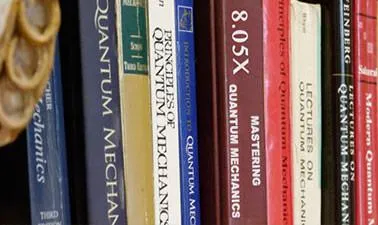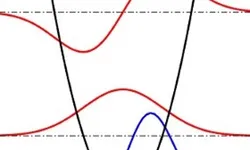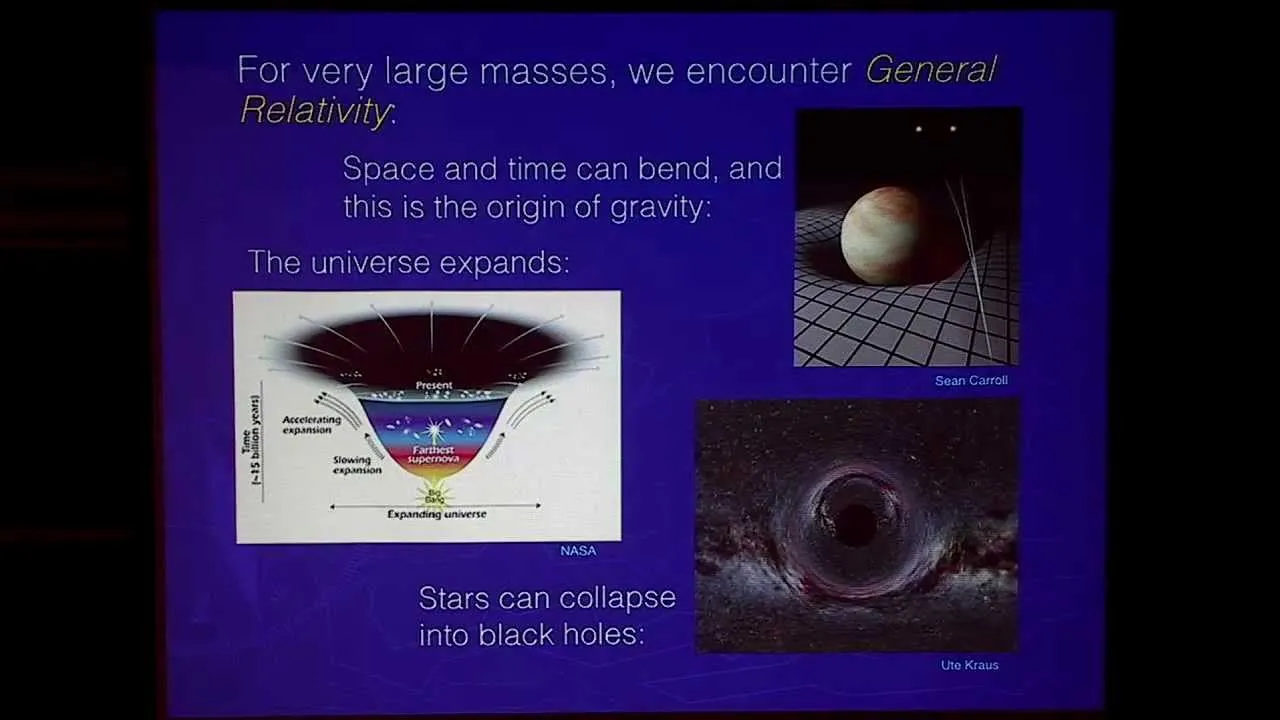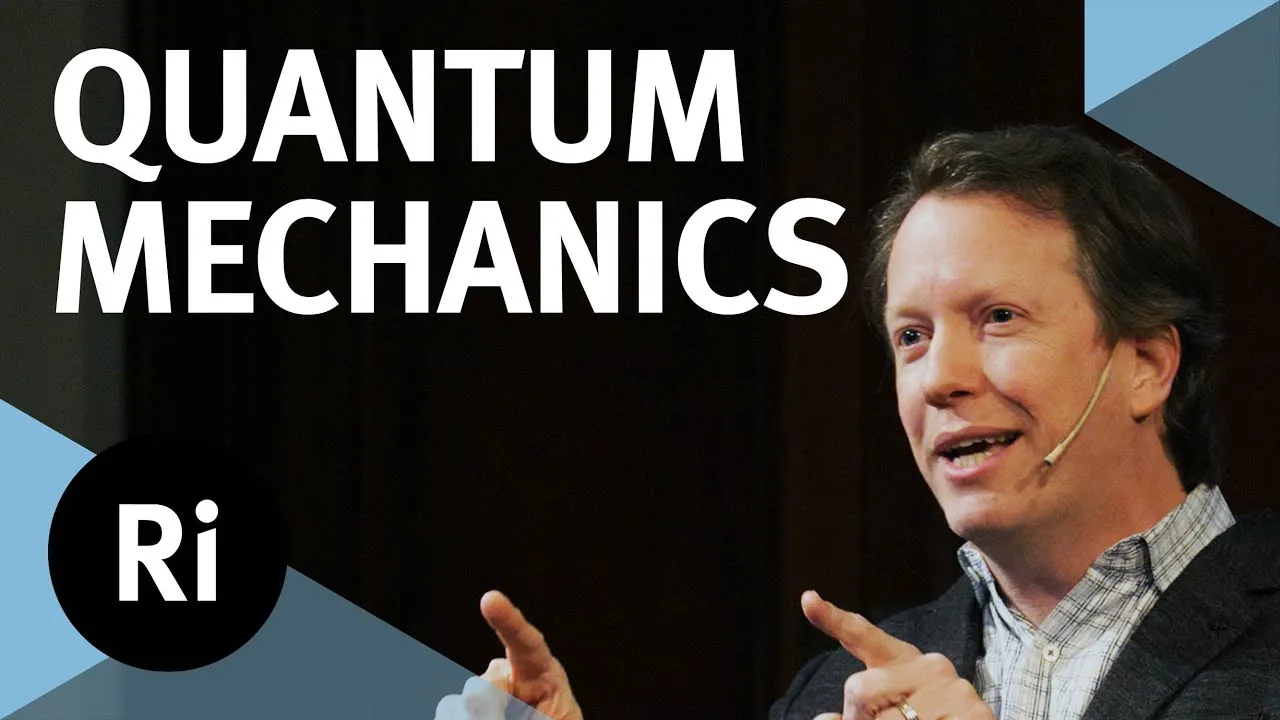
Mastering Quantum Mechanics 
This course provides a comprehensive overview of quantum mechanics and its mathematical foundations. It equips students with the necessary skills to conduct research in quantum mechanics and to comprehend the latest advancements in the field. ▼
ADVERTISEMENT
Course Feature
![]() Cost:
Cost:
Free
![]() Provider:
Provider:
Edx
![]() Certificate:
Certificate:
No Information
![]() Language:
Language:
English
![]() Start Date:
Start Date:
24th Feb, 2021
Course Overview
❗The content presented here is sourced directly from Edx platform. For comprehensive course details, including enrollment information, simply click on the 'Go to class' link on our website.
Updated in [March 06th, 2023]
This course, Mastering Quantum Mechanics, provides a sophisticated view of quantum mechanics and its proper mathematical foundation. It is designed to give students the tools needed to do research in quantum mechanics and to understand many current developments. The course is divided into three parts, each covering a different aspect of quantum mechanics. The first part reviews the basics of wave mechanics and introduces the variational principle. It then moves on to develop the technology of spin one-half states and spin operators. The last part of the module gives an in-depth look into linear algebra to establish the mathematical foundation necessary to do quantum mechanics. The module concludes by developing the bra-ket notation of Dirac. The second part covers Heisenberg’s uncertainty principle and the concept of compatible operators. It continues to develop the Heisenberg and the Schrödinger pictures of quantum mechanics. The module also covers the coherent and squeezed states of the harmonic oscillator. It concludes with two state systems and their applications to NMR and masers. The third part introduces the concept of tensor product states to discuss entanglement and Bell inequalities. The module also covers angular momentum and the representations of angular momentum. This is used to understand the spectrum of central potentials and to introduce hidden symmetries. It concludes with the subject of addition of angular momentum and an algebraic approach to the hydrogen atom spectrum. This course follows MIT’s on campus 8.05, the second semester of the three-course sequence on undergraduate quantum mechanics, and is equally rigorous. Before starting, students will need some basic familiarity with quantum mechanics, proficiency in calculus, and some knowledge of linear algebra. Completing the course provides the necessary foundation to pursue advanced study or research at the graduate level in areas related to quantum mechanics. It is estimated that students will need to invest at least 12 hours a week to master this course.
[Applications]
Upon completion of this course, students will have the necessary foundation to pursue advanced study or research at the graduate level in areas related to quantum mechanics. They will also have the tools needed to do research in quantum mechanics and to understand many current developments. Additionally, students will have a better understanding of the Schrodinger equation, the variational principle, spin one-half states and spin operators, Heisenberg’s uncertainty principle, compatible operators, coherent and squeezed states of the harmonic oscillator, two state systems, tensor product states, angular momentum, representations of angular momentum, the spectrum of central potentials, hidden symmetries, and the addition of angular momentum.
[Career Paths]
1. Quantum Mechanics Researcher: Quantum Mechanics Researchers are responsible for conducting research in the field of quantum mechanics and developing new theories and applications. They must have a deep understanding of the mathematical and physical principles of quantum mechanics and be able to apply them to solve complex problems. They must also be able to communicate their findings to other scientists and the public. The demand for quantum mechanics researchers is increasing as the field continues to grow and develop.
2. Quantum Computing Engineer: Quantum Computing Engineers are responsible for designing and developing quantum computing systems. They must have a deep understanding of the principles of quantum mechanics and be able to apply them to develop new algorithms and architectures for quantum computing systems. They must also be able to communicate their findings to other engineers and the public. The demand for quantum computing engineers is increasing as the field continues to grow and develop.
3. Quantum Mechanics Educator: Quantum Mechanics Educators are responsible for teaching the principles of quantum mechanics to students. They must have a deep understanding of the mathematical and physical principles of quantum mechanics and be able to explain them in a way that is accessible to students. They must also be able to communicate their findings to other educators and the public. The demand for quantum mechanics educators is increasing as the field continues to grow and develop.
4. Quantum Mechanics Consultant: Quantum Mechanics Consultants are responsible for providing advice and guidance to organizations on the application of quantum mechanics. They must have a deep understanding of the mathematical and physical principles of quantum mechanics and be able to apply them to solve complex problems. They must also be able to communicate their findings to other consultants and the public. The demand for quantum mechanics consultants is increasing as the field continues to grow and develop.
[Education Paths]
Recommended Degree Paths:
1. Master of Science in Physics: This degree program provides students with a comprehensive understanding of the principles of physics and their applications. Students will learn about the fundamentals of quantum mechanics, including wave mechanics, spin operators, linear algebra, Heisenberg’s uncertainty principle, Schrödinger’s picture, coherent and squeezed states, tensor product states, angular momentum, and the hydrogen atom spectrum. This degree program is ideal for those interested in pursuing a career in research or teaching in the field of physics.
2. Master of Science in Applied Physics: This degree program focuses on the application of physics principles to solve real-world problems. Students will learn about the fundamentals of quantum mechanics, including wave mechanics, spin operators, linear algebra, Heisenberg’s uncertainty principle, Schrödinger’s picture, coherent and squeezed states, tensor product states, angular momentum, and the hydrogen atom spectrum. This degree program is ideal for those interested in pursuing a career in engineering, technology, or other applied fields.
3. Doctor of Philosophy in Physics: This degree program provides students with an in-depth understanding of the principles of physics and their applications. Students will learn about the fundamentals of quantum mechanics, including wave mechanics, spin operators, linear algebra, Heisenberg’s uncertainty principle, Schrödinger’s picture, coherent and squeezed states, tensor product states, angular momentum, and the hydrogen atom spectrum. This degree program is ideal for those interested in pursuing a career in research or teaching in the field of physics.
4. Doctor of Philosophy in Applied Physics: This degree program focuses on the application of physics principles to solve real-world problems. Students will learn about the fundamentals of quantum mechanics, including wave mechanics, spin operators, linear algebra, Heisenberg’s uncertainty principle, Schrödinger’s picture, coherent and squeezed states, tensor product states, angular momentum, and the hydrogen atom spectrum. This degree program is ideal for those interested in pursuing a career in engineering, technology, or other applied fields.
Course Provider

Provider Edx's Stats at AZClass
Discussion and Reviews
0.0 (Based on 0 reviews)
Explore Similar Online Courses

App Development for Microsoft HoloLens

Devtools Pro: The Basics of Chrome Developer Tools

Python for Informatics: Exploring Information

Social Network Analysis

Introduction to Systematic Review and Meta-Analysis

The Analytics Edge

DCO042 - Python For Informatics

Causal Diagrams: Draw Your Assumptions Before Your Conclusions

Whole genome sequencing of bacterial genomes - tools and applications

Foundations of Quantum Mechanics

Gravity and Quantum Mechanics - The Quest for Unification

A Brief History of Quantum Mechanics - with Sean Carroll
 Related Categories
Related Categories
 Popular Providers
Popular Providers
Quiz
 Submitted Sucessfully
Submitted Sucessfully
1. What is the prerequisite for this course?
2. What is the signature course in MIT's physics program?
3. What is the time investment for this course?


Start your review of Mastering Quantum Mechanics